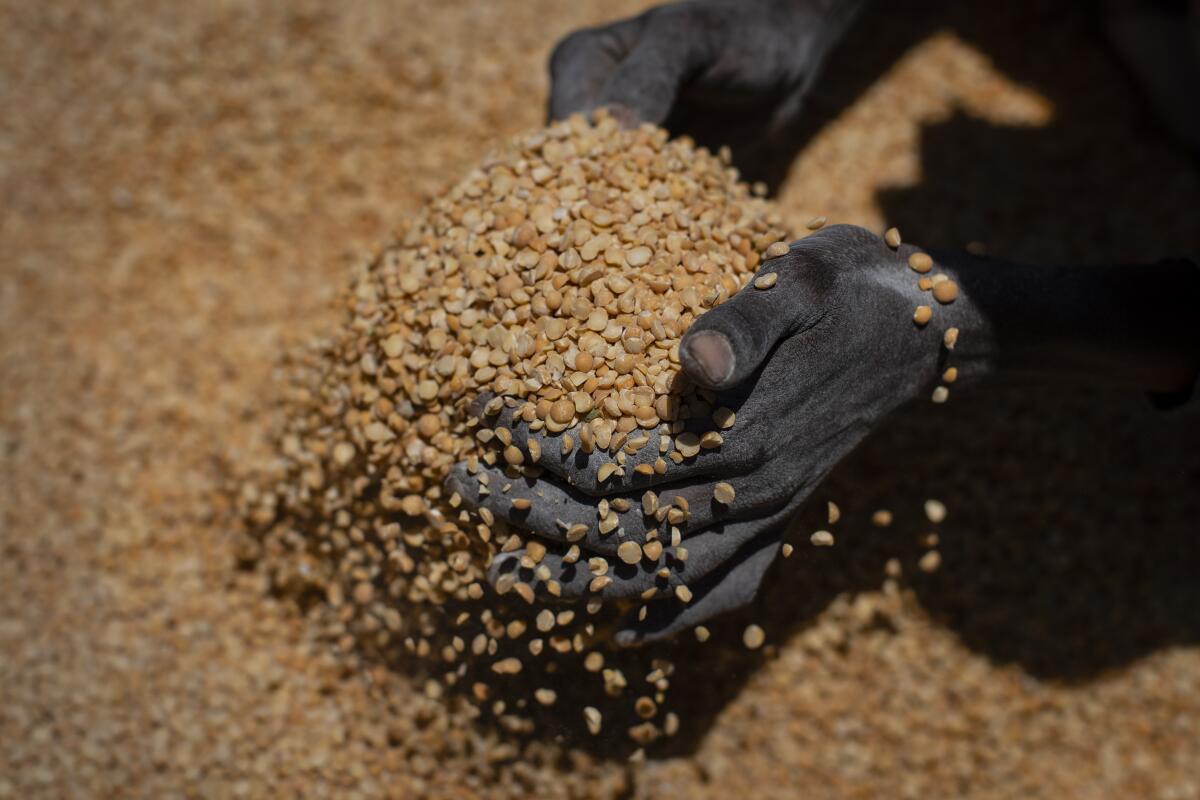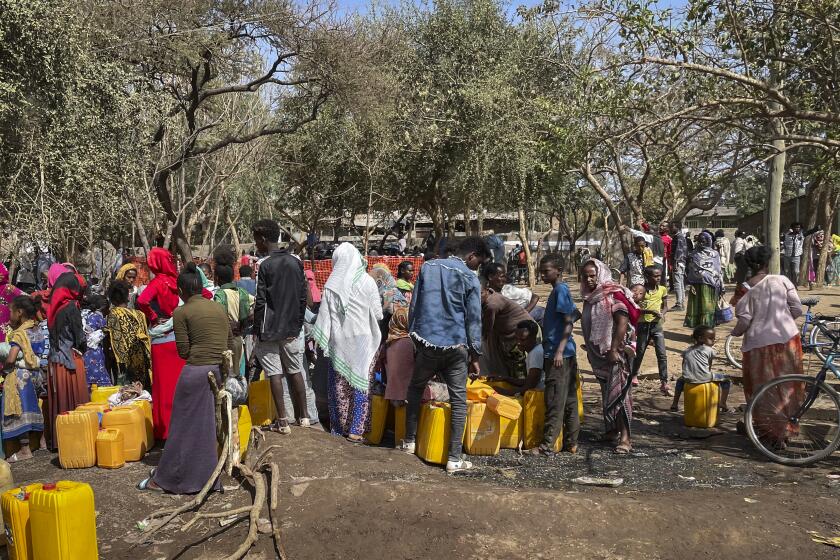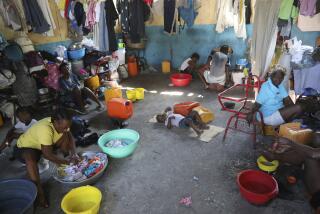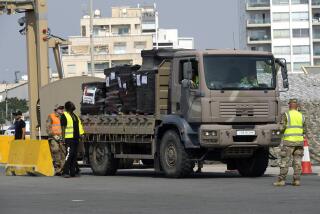Many in Ethiopia’s Tigray are suffering from an ‘extreme lack of food,’ U.N. says

- Share via
NAIROBI, Kenya — More than one-third of the people in Ethiopia’s embattled Tigray region “are suffering an extreme lack of food,” the United Nations World Food Program said in a new assessment of the region, which has been under a months-long government blockade.
“Families are exhausting all means to feed themselves, with three-quarters of the population using extreme coping strategies to survive,” the World Food Program said in its report released Friday, noting increases in begging and relying on just one meal a day. It called on all parties in Ethiopia’s war to agree to a humanitarian cease-fire and “formally agreed transport corridors” for aid after 15 months of war.
The U.N. said no aid convoy has entered the Tigray region of some 6 million people since mid-December. Separately, the U.N. humanitarian agency said less than 10% of the needed supplies, including medicine and fuel, have entered Tigray since mid-July. All international NGOs operating in Tigray have depleted their fuel, “with their staff delivering the little remaining humanitarian supplies and services on foot, where possible,” the agency said in its Friday update.
Ethiopia’s government has been wary of allowing aid to fall into the hands of the Tigray forces who once dominated the national government and have been battling the current government of Prime Minister Abiy Ahmed since November 2020. The government in part has blamed problems with aid delivery on insecurity it says is caused by Tigray forces, including new fighting in the neighboring Afar region near the only approved road corridor for aid.
Aid workers, however, also blame bureaucratic obstacles, including intrusive personal searches and confiscation of items such as personal medications, before their visits to Tigray. The new WFP report, based on face-to-face interviews with more than 980 households across accessible parts of Tigray, cited “extraordinary operation challenges.”
Meanwhile, hunger is growing. When asked whether there is famine in Tigray, WFP spokesman Tomson Phiri told reporters in Geneva that it had not been declared. But “we have people who are facing famine-like conditions. ... Famine and famine-like conditions? Different animals, but the same beast.”
Thousands of miles from the Tigray war a lawsuit between trustees and clergy over the language of services is tearing apart an Ethiopian church in Ohio.
The war has shifted in recent weeks, with the Tigray forces retreating into their region after attempting to advance on the capital, Addis Ababa, and Ethiopia’s military saying it would not pursue them further. That opened the way for fresh mediation efforts by the United States and the African Union, with humanitarian access a key goal.
Aid has begun reaching people in the Amhara and Afar regions after Tigray forces’ incursions there displaced hundreds of thousands. But the new WFP report said that some 9 million people, the most yet in the war, need food assistance across the three affected regions.
Ethiopia’s foreign ministry this week said it was working with aid partners to facilitate daily cargo flights to Tigray “to transport much-needed medicines and supplies.” It is not clear when the daily flights will begin, though the International Committee of the Red Cross announced Wednesday that it had made its first delivery of medical supplies to Tigray since September, calling it “a huge relief.” A second flight followed Thursday.
The U.N. has said time is running out.
Residents of the town of Bora, in northern Ethiopia’s Tigray region, tell of a horrific massacre of local men and boys by Ethiopian soldiers.
“Aid organizations have warned that operations could cease completely by the end of February in Tigray,” U.N. spokesman Stephane Dujarric told reporters Thursday.
Tigray’s health bureau this week reported that nearly 1,500 people died of malnutrition in just part of the region over a four-month period last year, including more than 350 young children. It cited more than 5,000 blockade-related deaths in all from hunger and disease — the largest official death toll yet associated with the country’s war.
Ethiopia’s government has sought to restrict reporting on the war and detained some journalists under the state of emergency, including a video freelancer accredited to the Associated Press, Amir Aman Kiyaro. The country’s Council of Ministers this week proposed ending the state of emergency now, citing the changing security situation. That needs lawmakers’ approval.
More to Read
Sign up for Essential California
The most important California stories and recommendations in your inbox every morning.
You may occasionally receive promotional content from the Los Angeles Times.












